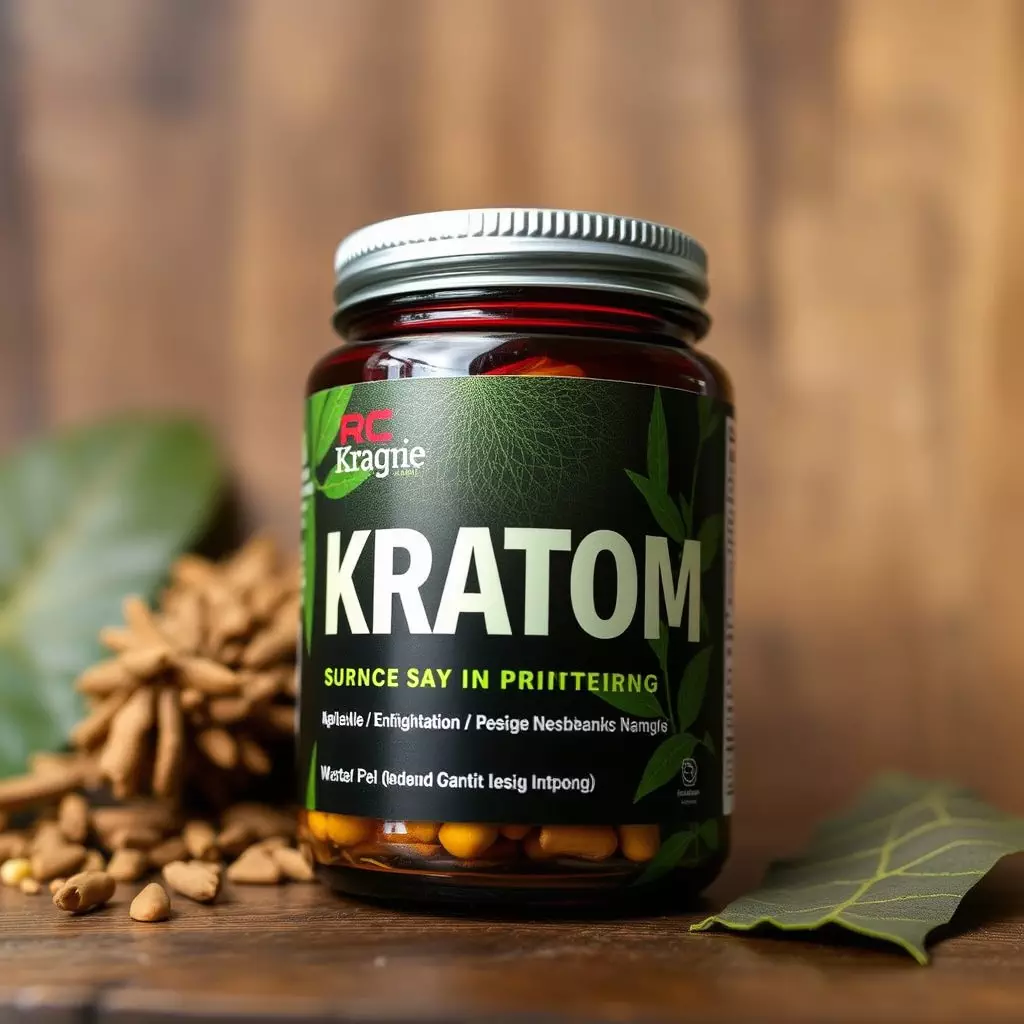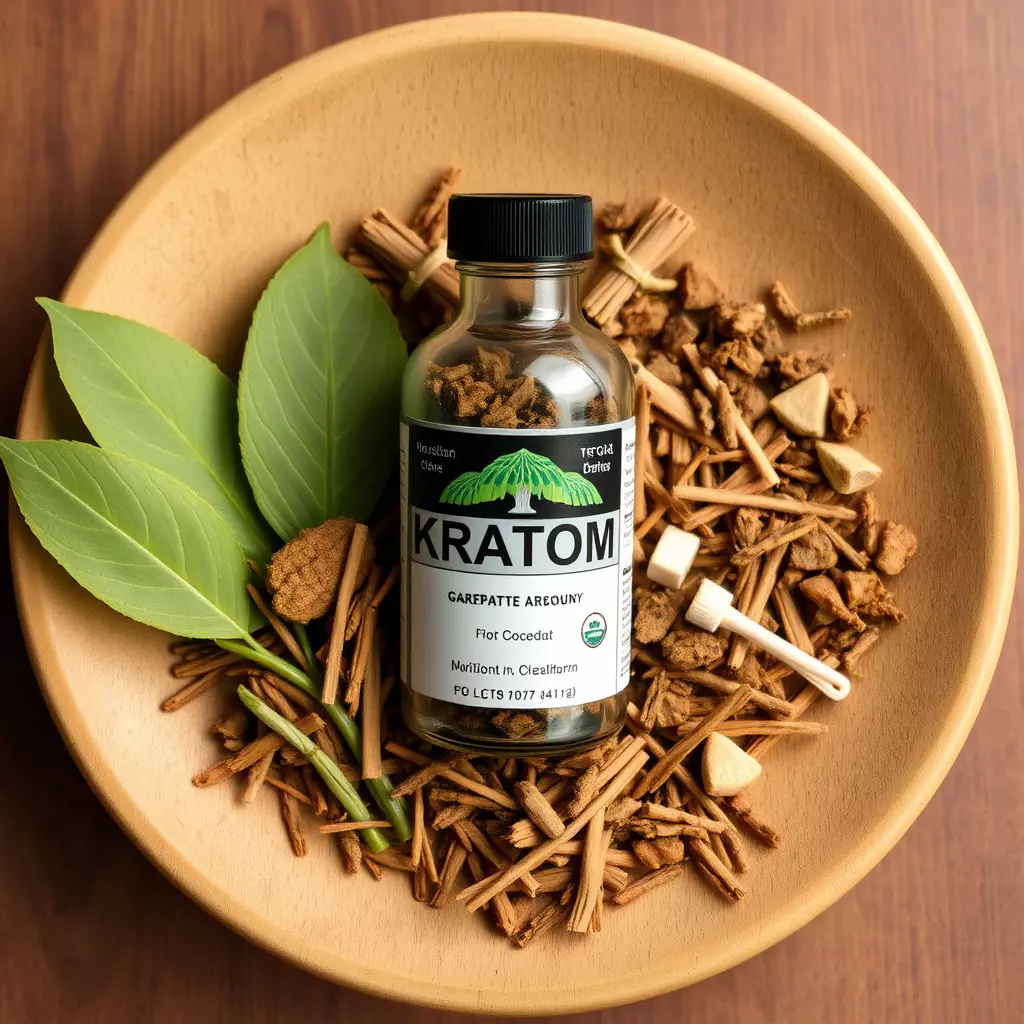Chronic Fatigue Syndrome (CFS) is a condition characterized by severe, unexplainable fatigue and a range of symptoms including sleep disturbances, cognitive difficulties, and pain. Managing CFS involves a multifaceted approach that includes lifestyle changes, psychological support, and pharmaceutical treatments. There's growing interest in kratom, an extract from Mitragyna speciosa, as a potential treatment for some CFS symptoms due to its interaction with opioid receptors. In Texas, while kratom is not explicitly scheduled under the Texas Controlled Substances Act, its legal status is ambiguous and subject to change under federal and state laws. As of 2023, it's important for individuals in Texas to understand that while kratom may be generally legal at the state level, local regulations could vary, necessitating verification of its legal standing in their specific location. For those considering kratom as part of their CFS treatment, consulting with healthcare professionals is crucial to ensure it complements their overall treatment plan and adheres to safety guidelines. Regular updates on legislative developments are recommended due to the dynamic nature of kratom's legal status. Always remember to approach the use of kratom with caution, considering dosage, strain selection, and potential interactions, and monitor health outcomes closely for safe and effective management of CFS symptoms.
Chronic fatigue syndrome (CFS) presents a complex challenge for individuals experiencing its debilitating symptoms. An emerging area of interest lies within the potential benefits of kratom, a botanical substance, in managing CFS. This article delves into the therapeutic role of kratom, particularly in the context of Texas, where the legality of its use is a critical factor for residents considering its inclusion in their wellness regimen. We will navigate the legal landscape of “is kratom legal in Texas?” and provide a detailed guide on how kratom may be effectively integrated into CFS management strategies. Join us as we explore this intriguing intersection of natural remedies and chronic health conditions, with a focus on practical applications for those seeking relief from CFS.
- Understanding Chronic Fatigue Syndrome and Kratom's Role in Management
- Exploring Legal Considerations of Kratom Use in Texas
- Effective Strategies for Managing Chronic Fatigue Syndrome with Kratom: A Comprehensive Guide
Understanding Chronic Fatigue Syndrome and Kratom's Role in Management

Chronic fatigue syndrome (CFS) is a complex and often debilitating condition characterized by profound and persistent fatigue that is not relieved by rest, affecting millions worldwide. The etiology of CFS remains elusive, with a constellation of symptoms including sleep disturbances, cognitive impairment, muscle pain, and a host of other discomforts. Management of CFS typically involves a multidisciplinary approach including lifestyle modifications, psychological support, and pharmacological interventions tailored to individual needs. In this context, kratom, a plant-based compound derived from the leaves of Mitragyna speciosa, has garnered attention for its potential therapeutic properties. Kratom contains alkaloids that may influence the brain’s opioid receptors, providing analgesic and energizing effects. While research is ongoing to fully understand kratom’s mechanisms, anecdotal evidence suggests it can play a role in managing some of the symptoms associated with CFS, particularly pain and fatigue.
The legality of kratom varies across different jurisdictions within the United States, with its status being particularly nuanced. As of my knowledge cutoff in 2023, is kratom legal in Texas? The answer is somewhat complex; in Texas, kratom is not explicitly scheduled like it is in some other states, which means it is not outright illegal but is subject to the Texas Controlled Substances Act. This legal ambiguity can make the purchase and use of kratom for CFS management a bit uncertain for residents, as it may be subject to change based on evolving state and federal regulations. Individuals interested in using kratom as part of their CFS management strategy should stay informed about local laws and consult with healthcare providers to ensure safe and effective use within the scope of their treatment plan. It is crucial for those managing CFS to work closely with their healthcare team, considering the potential benefits and risks associated with any new treatment modality like kratom.
Exploring Legal Considerations of Kratom Use in Texas

Mitigating chronic fatigue syndrome through management strategies often involves a multifaceted approach, and some individuals explore the use of kratom as an adjunct therapy. However, before integrating kratom into such regimens, it’s crucial to understand the legal landscape governing its use in Texas. Kratom, derived from the leaves of Mitragyna speciosa, has been a subject of debate due to its dual effects as both a stimulant and an opioid. As of recent updates, kratom remains a gray area within Texas’s legal system. While it is not explicitly classified as a controlled substance under the Texas Controlled Substances Act, the Drug Enforcement Administration (DEA) has placed it in the Schedule I category, which means it is illegal to possess, distribute, or manufacture kratom at the federal level. Nevertheless, Texas law has not explicitly followed suit, leaving its status ambiguous and subject to interpretation by local authorities. This paradoxical legal position can lead to confusion for those considering kratom as part of their chronic fatigue management plan. It’s advisable for individuals to consult with legal counsel or healthcare providers knowledgeable about the current laws and regulations before purchasing, using, or discussing kratom use openly to avoid potential legal repercussions. Additionally, staying informed on legislative changes is essential, as the legal status of kratom can evolve rapidly, potentially impacting its availability and legality in Texas.
Effective Strategies for Managing Chronic Fatigue Syndrome with Kratom: A Comprehensive Guide

Mitigating the debilitating effects of Chronic Fatigue Syndrome (CFS) can be a complex task, but incorporating kratom into a management strategy may offer relief for many sufferers. Kratom, derived from the leaves of the Mitragyna speciosa tree native to Southeast Asia, has garnered attention for its potential therapeutic properties. For individuals in Texas and elsewhere, understanding the legality of kratom is a critical first step. As of the knowledge cutoff in 2023, the legal status of kratom in Texas can vary by municipality; while it is legal at the state level, some cities have enacted their own regulations. It’s imperative to verify current local laws before considering its use for CFS management.
Effective kratom management for CFS involves careful dosing and strain selection, as different strains may offer distinct effects. Alkaloids found in kratom, such as 7-hydroxymitragynine and mitragynine, are believed to interact with opioid receptors in the brain, potentially providing pain relief and improving mood, which can be greatly compromised by CFS. A key strategy for optimal use is to start with a low dose to gauge individual sensitivity and gradually increase as needed while monitoring effects closely. Additionally, rotating strains or combining them can help prevent tolerance and maintain efficacy. It’s also advisable to consult with a healthcare provider before integrating kratom into your CFS management plan, to ensure it aligns with other treatments and does not interfere with any medications you may be taking. Regular monitoring of both physical well-being and mental health is crucial to safely manage symptoms associated with CFS using kratom.
In conclusion, chronic fatigue syndrome presents a complex challenge for individuals seeking effective management strategies. The role of kratom as a potential tool in mitigating symptoms offers hope for those affected. However, it is imperative to navigate the legal landscape carefully, as the status of kratom use varies by state; specifically, understanding whether kratom is legal in Texas is crucial for individuals considering this approach. With careful consideration and responsible use, kratom may provide a beneficial component within a comprehensive treatment plan for managing CFS symptoms. The strategies outlined in this guide aim to offer clarity and guidance to those exploring the potential benefits of kratom, while also emphasizing the importance of consulting with healthcare professionals to ensure safe and effective management of chronic fatigue syndrome.






